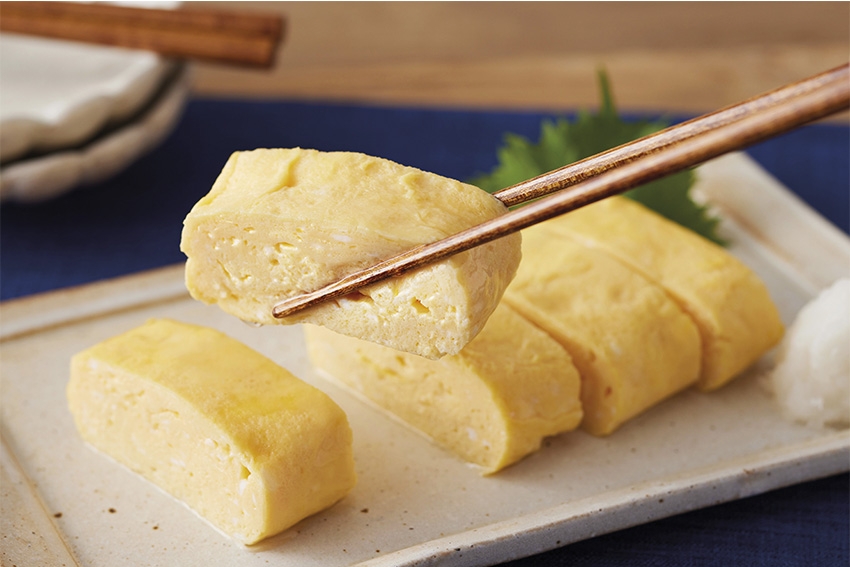As part of its YAMAKI Vision 2035, the firm is focused on promoting traditional Japanese cuisine and making it a staple worldwide.

By Sasha Lauture and Bernard Thompson
Anyone who has tasted authentic Japanese traditional cuisine (Washoku) has experienced the versatile flavors of its fundamental ingredient: Dashi. Dashi is a fish or kelp-based broth that is essential to Washoku, often made with boiled and dried-smoked skipjack tuna, or Katsuobushi. For over 100 years, Yamaki has specialized in bringing the flavor and health benefits of Dashi and Katsuobushi to consumers throughout Japan.
Yamaki’s founder, Toyokichi Kido, started his company in 1917, in the western Japanese prefecture of Ehime. His dream was to offer people a wide variety of life-enhancing meal options using Katsuobushi and Dashi, and Yamaki’s products quickly became a favorite with home cooks and professional chefs alike.
Dashi forms the basis of miso soup, simmered dishes, ramen and many other Japanese foods; it is the central pillar of Washoku, which in 2013 was recognized by UNESCO as a part of the intangible cultural heritage of humanity. But Yamaki’s approach is far from old-fashioned—it is constantly updating this traditional ingredient to meet modern tastes and needs.
To satisfy demand from homemakers for a quick and easy Dashi broth in the busy years of post-war growth, Yamaki came up with the ready-made, powdered Katsuo Dashi no Moto in 1969. Within the next 25 years, it would go on to release the Men Tsuyu noodle soup base and the infinitely versatile liquid Dashi, Kappo Shiradashi, both of which rapidly became household staples. Today, Yamaki is famous throughout Japan as the Katsuobushi and Dashi company.
Yamaki, the Katsuobushi & Dashi Company of the World
Even as it built its reputation in Japan, Yamaki had a plan for Katsuobushi and Dashi that extended to the whole world. Its first overseas market was Taiwan, where it introduced Katsuo Dashi no Moto in 1981, and where it continues to operate a joint venture to this day. Since then, it has expanded to over 30 countries, including other Asian nations and the United States, under a policy that it calls “flavor without borders.”
This expansion picked up speed in the 21st century, with the formation of new subsidiaries in the United States, China, South Korea and the Maldives. In 2018, Yamaki opened a Katsuobushi factory in Portland, Oregon, followed by a sales office in Chicago in 2022, to allow it to communicate more closely with American consumers.
The company’s president, Yoshihiro Kido, has declared his intention to grow Yamaki’s Katsuobushi and Dashi into a global brand that contributes to the whole of society by 2035. He is also a strong believer in the international potential of Japanese cuisine. “Globally, Japanese cuisine is still seen as ‘ethnic,’ but through fusion with local culture, tastes and customs, we can further increase its appeal,” says Mr. Kido.
He has a special focus on the United States as a growth market: “The U.S. population is young and growing, and there is a wonderful culture of creating new dishes. We are also anticipating greater health consciousness going forward, which makes it a very promising market.”
However, introducing people to a new food culture is not always simple. For example, to Japanese people, Katsuobushi has a comforting aroma. Americans, on the other hand, say it smells “smoky.” Bridging these cultural gaps will open the way to a fusion between Japanese cuisine and diverse flavors and customs from around the world.
Nowhere is Yamaki’s evolving value proposition more visible than in Kappo Shiradashi. This Dashi-based liquid seasoning has a rich umami taste and mellow flavors that enhance the taste of any Washoku dish. Even 30 years after its first release, it continues to set new sales records thanks to its limitless versatility. In the words of Mr. Kido, “Kappo Shiradashi can be used in all kinds of Japanese, Chinese and Western dishes.”
Outside Japan, there is no shortage of people who want to recreate foods and flavors they enjoyed at Japanese restaurants in their own kitchens, and Yamaki is making the most of that demand to spread brand awareness and promote sales of its products. Overseas, it is also combining the flavor element with information about the nutritional benefits of Dashi, to ride the wave of health consciousness now sweeping the globe.

Japanese rolled omlet
A Sustainable Future
In parallel with the growth of its business, Yamaki is strongly pursuing sustainability efforts to protect the global environment. Since 2019, based on feedback from customers, it has been cutting packaging to improve resource efficiency, and as a result of investments in waste reduction, it achieved a decrease of more than 20 percent in energy-related CO2 emissions in 2023 compared to 2013. Japan’s greenhouse gas emissions reduction target is a 46 percent drop by 2030, which Yamaki is on track to meet.
Yamaki’s flagship products are all made from skipjack tuna, a sustainable resource. Worldwide, more than two million tons of skipjack tuna are caught every year, but the population is stable. The process of turning skipjack tuna into Katsuobushi generates almost no waste. The skipjack tuna is boiled, gutted and deboned, then smoke-dried. The water it is boiled in is used as an ingredient in other products, and the bones and innards become fertilizer.
These efforts toward sustainability also match the needs of modern consumers, and by combining quality improvement with sustainable practices, Yamaki is continuing to protect the essence and value of Japanese cuisine.
Preparing for Tomorrow
In January 2024, Yamaki announced its long-term management vision, YAMAKI Vision 2035, which incorporates the goal of becoming the global name in Katsuobushi and Dashi by 2035. Mr. Kido says: “The value that Yamaki provides lies in creating shared value (CSV), which balances the creation of economic and social value, and we aim to provide this to a wide range of stakeholders.”
For Yamaki, CSV means contributing to three types of health: physical health, mental health and the health of the global environment. The company wants to approach CSV and enhance corporate value in a way that only it can, not just as a food producer but specifically as a leading manufacturer of Katsuobushi and Dashi products.
Yamaki considers itself the long-time protector of one of the pillars of Japanese cuisine, even as it works to build a diverse global food culture for the future. Whether it’s a bowl of ramen eaten out in Tokyo, or your favorite dish cooked for yourself or your loved ones at home, Yamaki Dashi adds depth and richness of flavor. Yamaki has been delivering that flavor to people around the world for over a century—and its story has just begun.
To hear more from President Yoshihiro Kido of Yamaki, check out this interview with him
For more information, please visit their website at:https://yamakiusa.com/
0 COMMENTS